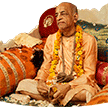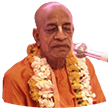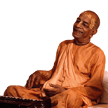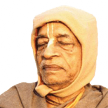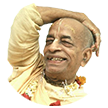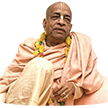Uttara - a glorious personality: Difference between revisions
(Created page with "Category:Glorious Personalities Category:Glorious Personalities from Bhagavad Gita Category:Glorious Personalities from Srimad Bhagavatam Category:Glorious Perso...") |
No edit summary |
||
| Line 1: | Line 1: | ||
[[Category:Glorious Personalities]] | [[Category:Glorious Personalities]] | ||
[[Category:Glorious Personalities from Bhagavad Gita]] | [[Category:Glorious Personalities from Bhagavad Gita]] | ||
[[Category:Glorious Personalities from Srimad Bhagavatam] | [[Category:Glorious Personalities from Srimad Bhagavatam]]] | ||
[[Category:Glorious Personalities from Mahabharata]] | [[Category:Glorious Personalities from Mahabharata]] | ||
[[Category:Glorious Personalities - Pages Under Construction]] | [[Category:Glorious Personalities - Pages Under Construction]] | ||
<!----------------------- edit below this line -----------------------> | <!----------------------- edit below this line -----------------------> | ||
| Line 12: | Line 10: | ||
{{Personalitiesnav}} | {{Personalitiesnav}} | ||
<!----------------- BEGIN STANDARD HEADING -----------------> | <!----------------- BEGIN STANDARD HEADING -----------------> | ||
Srila Prabhupada's books, lectures, conversations and letters reveal the qualities of this glorious personality as seen in the Vaniquotes '''[[Vaniquotes:Category:Uttara|Uttara]]''' category. An introduction from his | Srila Prabhupada's books, lectures, conversations and letters reveal the qualities of this glorious personality as seen in the Vaniquotes '''[[Vaniquotes:Category:Uttara|Uttara]]''' category. An introduction from his books is given below in the following 8 quotes. | ||
<!----------------- END STANDARD HEADING -----------------> | <!----------------- END STANDARD HEADING -----------------> | ||
---- | ---- | ||
== Quotes from Srila Prabhupada's | == Quotes from Srila Prabhupada's books == | ||
<!----------------- edit quote boxes below this line -----------------> | <!----------------- edit quote boxes below this line -----------------> | ||
{{VaniQuotebox| | {{VaniQuotebox|The womb of Uttara, mother of Maharaja Pariksit, was spoiled by the dreadful and invincible brahmastra weapon released by Asvatthama. But Maharaja Pariksit was saved by the Supreme Lord|The sage Śaunaka said: The womb of Uttarā, mother of Mahārāja Parīkṣit, was spoiled by the dreadful and invincible brahmāstra weapon released by Aśvatthāmā. But Mahārāja Parīkṣit was saved by the Supreme Lord. The sages assembled in the forest of Naimiṣāraṇya inquired from Sūta Gosvāmī about the birth of Mahārāja Parīkṣit, but in the course of the narration other topics like the release of the brahmāstra by the son of Droṇa, his punishment by Arjuna, Queen Kuntīdevī's prayers, the Pāṇḍavas' visit to the place where Bhīṣmadeva was lying, his prayers and thereafter the Lord's departure for Dvārakā were discussed. '''(Śrīmad-Bhāgavatam 1.12.1)'''}} | ||
{{VaniQuotebox| | {{VaniQuotebox|There is no difference between the thumblike Visnu in the womb of Uttara and the full-fledged Narayana in the Vaikuntha-dhama, the kingdom of Godhead|There is no difference between the thumblike Viṣṇu in the womb of Uttarā and the full-fledged Nārāyaṇa in the Vaikuṇṭha-dhāma, the kingdom of Godhead. He accepts the form of arca-vigraha (worshipable Deity) just to accept service from His different incapable devotees. By the mercy of the arca-vigraha, the form of the Lord in material elements, the devotees who are in the material world can easily approach the Lord, although He is not conceivable by the material senses. '''(Śrīmad-Bhāgavatam 1.12.9)'''}} | ||
{{VaniQuotebox| | {{VaniQuotebox|Uttara said: O Lord of lords, Lord of the universe! You are the greatest of mystics. Please protect me, protect me, for there is no one else who can save me from the clutches of death in this world of duality|Uttarā said: O Lord of lords, Lord of the universe! You are the greatest of mystics. Please protect me, protect me, for there is no one else who can save me from the clutches of death in this world of duality. This material world is the world of duality, in contrast with the oneness of the absolute realm. The world of duality is composed of matter and spirit, whereas the absolute world is complete spirit without any tinge of the material qualities. '''(Śrīmad-Bhāgavatam 1.8.9)'''}} | ||
{{VaniQuotebox| | {{VaniQuotebox|Uttara was the daughter of a great king, the wife of a great hero, and student of a great devotee, and later she was the mother of a good king also. She was fortunate in every respect|The mother of a child has a great responsibility in giving all protection to the child, and therefore Uttarā was not ashamed to express this frankly before Lord Kṛṣṇa. Uttarā was the daughter of a great king, the wife of a great hero, and student of a great devotee, and later she was the mother of a good king also. She was fortunate in every respect. '''(Śrīmad-Bhāgavatam 1.8.10)'''}} | ||
{{VaniQuotebox| | {{VaniQuotebox|Asvatthama discharged the brahmastra simply to kill the Pandavas, namely the five brothers headed by Maharaja Yudhisthira and their only grandson, who was lying within the womb of Uttara|Aśvatthāmā discharged the brahmāstra simply to kill the Pāṇḍavas, namely the five brothers headed by Mahārāja Yudhiṣṭhira and their only grandson, who was lying within the womb of Uttarā. Therefore the brahmāstra, more effective and finer than the atomic weapons, was not as blind as the atomic bombs. When the atomic bombs are discharged they do not discriminate between the target and others. Mainly the atomic bombs do harm to the innocent because there is no control. The brahmāstra is not like that. '''(Śrīmad-Bhāgavatam 1.8.12)'''}} | ||
{{VaniQuotebox| | {{VaniQuotebox|Akrura was present also when Abhimanyu, the son of Subhadra, was married with Uttara, mother of Maharaja Pariksit|Arjuna took Subhadrā forcibly away by the will of Kṛṣṇa. Both Kṛṣṇa and Akrūra went to see Arjuna after his successful kidnapping of Subhadrā. Both of them presented dowries to Arjuna after this incidence. Akrūra was present also when Abhimanyu, the son of Subhadrā, was married with Uttarā, mother of Mahārāja Parīkṣit. Ahūka, the father-in-law of Akrūra, was not on good terms with Akrūra. But both of them were devotees of the Lord. '''(Śrīmad-Bhāgavatam 1.11.16-17)'''}} | ||
{{VaniQuotebox| | {{VaniQuotebox|Abhimanyu's widow, Uttara, should have followed the path of her husband, but because she was pregnant, and Maharaja Pariksit, a great devotee of the Lord, was lying in embryo, she was responsible for his protection|This incident took place after the death of Abhimanyu, the husband of Uttarā. Abhimanyu's widow, Uttarā, should have followed the path of her husband, but because she was pregnant, and Mahārāja Parīkṣit, a great devotee of the Lord, was lying in embryo, she was responsible for his protection. The mother of a child has a great responsibility in giving all protection to the child, and therefore Uttarā was not ashamed to express this frankly before Lord Kṛṣṇa. Uttarā was the daughter of a great king, the wife of a great hero, and student of a great devotee, and later she was the mother of a good king also. '''(Śrīmad-Bhāgavatam 1.8.10)'''}} | ||
{{VaniQuotebox| | {{VaniQuotebox|Queen Kunti experienced personally that Lord Krsna was present before her, yet He entered within the womb of Uttara to save her embryo from the attack of Asvatthama's brahmastra|Queen Kuntī experienced personally that Lord Kṛṣṇa was present before her, yet He entered within the womb of Uttarā to save her embryo from the attack of Aśvatthāmā's brahmāstra. Kuntī herself was puzzled about whether Śrī Kṛṣṇa is all-pervasive or localized. In fact, He is both, but He reserves the right of not being exposed to persons who are not surrendered souls. This checking curtain is called the māyā energy of the Supreme Lord, and it controls the limited vision of the rebellious soul. '''(Śrīmad-Bhāgavatam 1.8.18)'''}} | ||
<!----------------- edit quote boxes above this line -----------------> | <!----------------- edit quote boxes above this line -----------------> | ||
Latest revision as of 10:28, 11 February 2017
] INTRODUCTION TEXT TO BE WRITTEN
Srila Prabhupada's books, lectures, conversations and letters reveal the qualities of this glorious personality as seen in the Vaniquotes Uttara category. An introduction from his books is given below in the following 8 quotes.
Quotes from Srila Prabhupada's books
Uttara - explore more within this category.
Vanipedia has now over 215 introductory articles compiled from Srila Prabhupada's teachings under the series titled Glorious Personalities. All these articles can be seen in the Table of Content on the right side of this article and also here in this Umbrella Category. Browse through them to relish the breadth and depth of Srila Prabhupada's teachings - There is an attractive personality for everyone.
